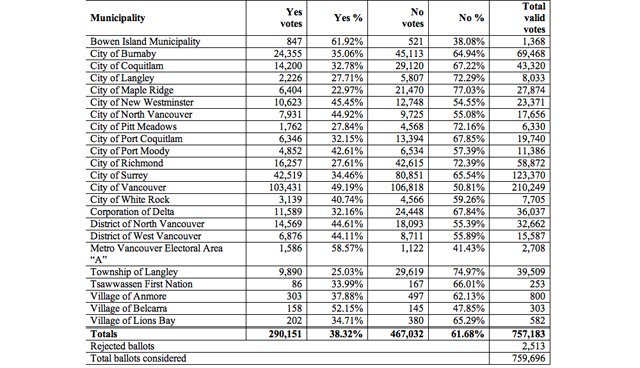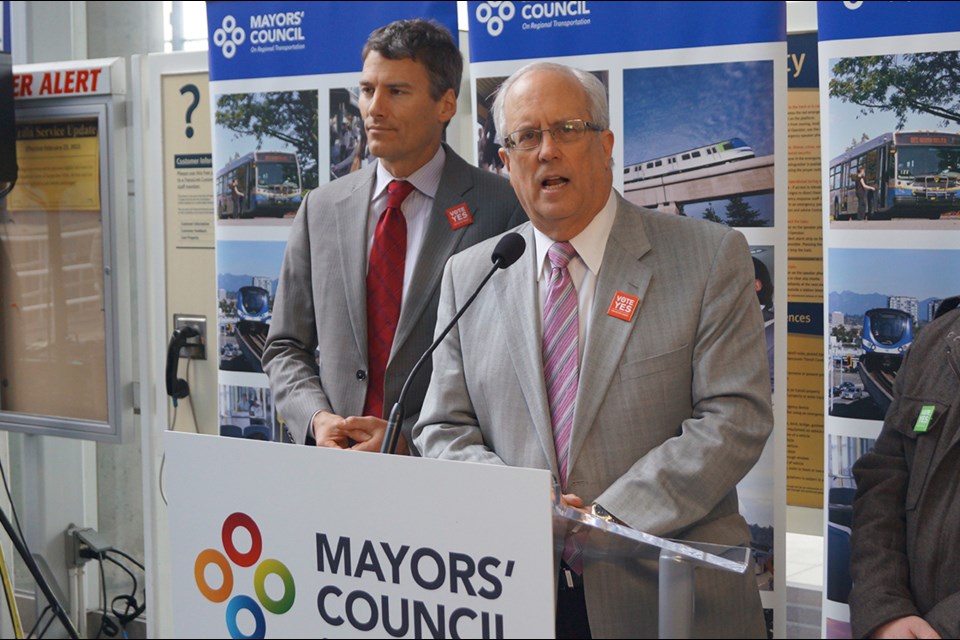People in the Lower Mainland have said a resounding “No” to the 0.5 per cent Provincial Sales Tax increase to fund the Mayor’s Transit Plan, with Richmond playing a major role in overwhelming fashion in the Transit Plebiscite.
Almost 73 per cent of Richmondites marked the “No” box, according to the results announced by Elections BC at about 10 a.m. today.
Richmond was the third highest “No” voting city among the 23 participating municipalities, with the total across the region voting “No” at 61.68 per cent.
Maple Ridge was the highest naysayer at 77.03 per cent, followed by the Township of Langley at 74.97 per cent.
Only three sectors voted “Yes” — Belcarra, Metro Vancouver Electoral Area A and Bowen Island.
Vancouver was split as 49.19 per cent of voters said "Yes."
The official turnout for the Metro Vancouver region was 48.64 per cent, although 51 per cent of voters participated, as 38,393 ballots (2.5 per cent) were returned but not considered as they didn't "meet the requirements" of the plebiscite, according to Elections BC.
At a news conference this morning, Vancouver Mayor Gregor Robertson said it is now up to the provincial government to find a new funding model for the Mayors' Council 10-year transportation plan that includes a light rail system in Surrey, a Commercial-Arbutus Broadway subway line in Vancouver and a new Pattullo Bridge.
The council spent $5.8 million on advertising the tax proposal.
With no "plan B" in hand, Robertson said that should there be no new funding model in the next six months the mayors would "reconsider" their role on the Translink board. he said Translink's governance model must be changed, as well.
After supporting the proposed tax increase, the The Richmond Chamber of Commerce expressed disappointment in the results and policy advisory committee chair Howard Harowitz stated:
"In Richmond, we have seen a clear majority of citizens reject referendums related to tax changes as witnessed in the 2011 HST referendum, and now the 2015 Transit plebiscite. Moving forward it is vital that we explore new processes and public consultation methods to determine how we fund important initiates.”




